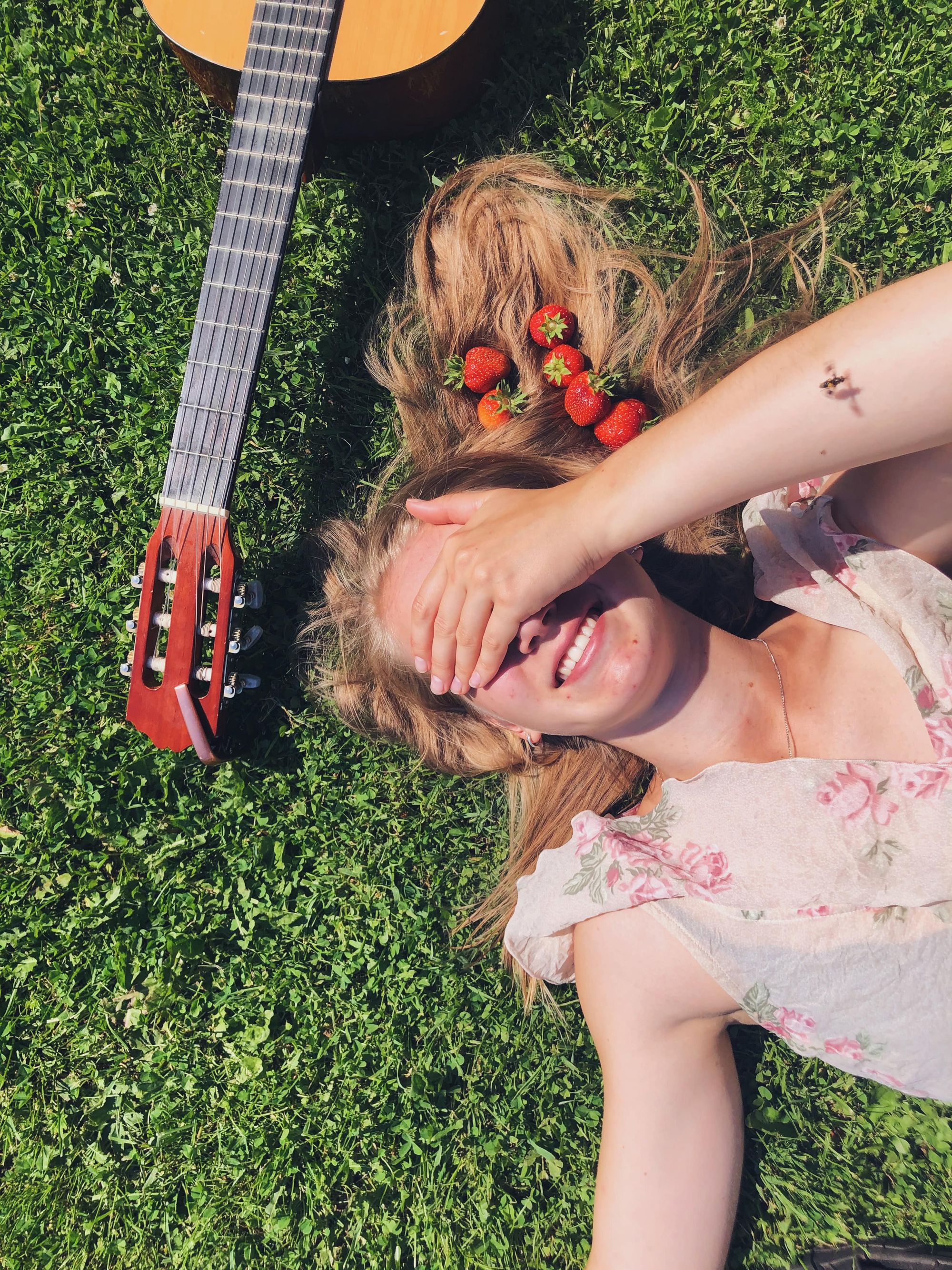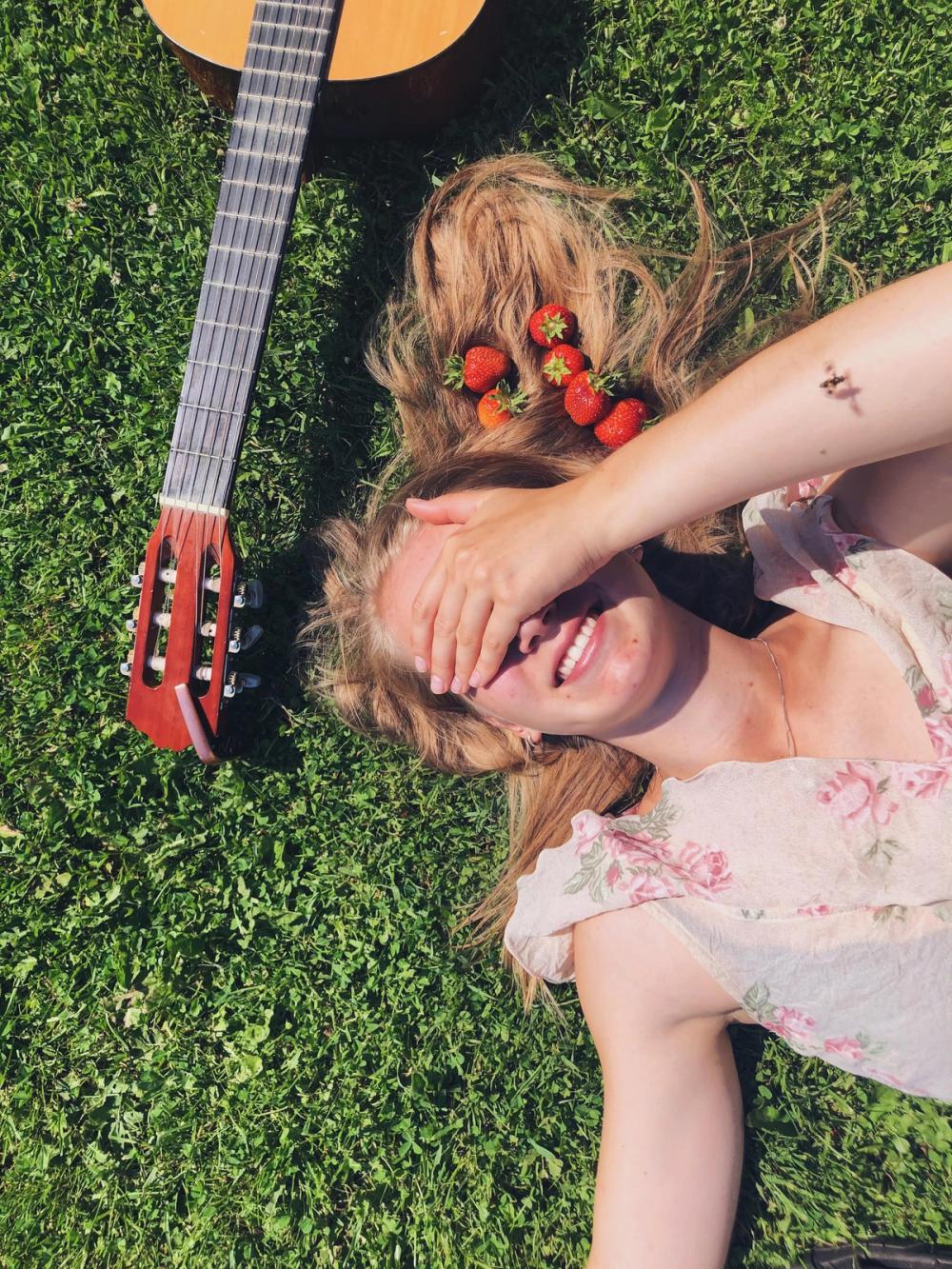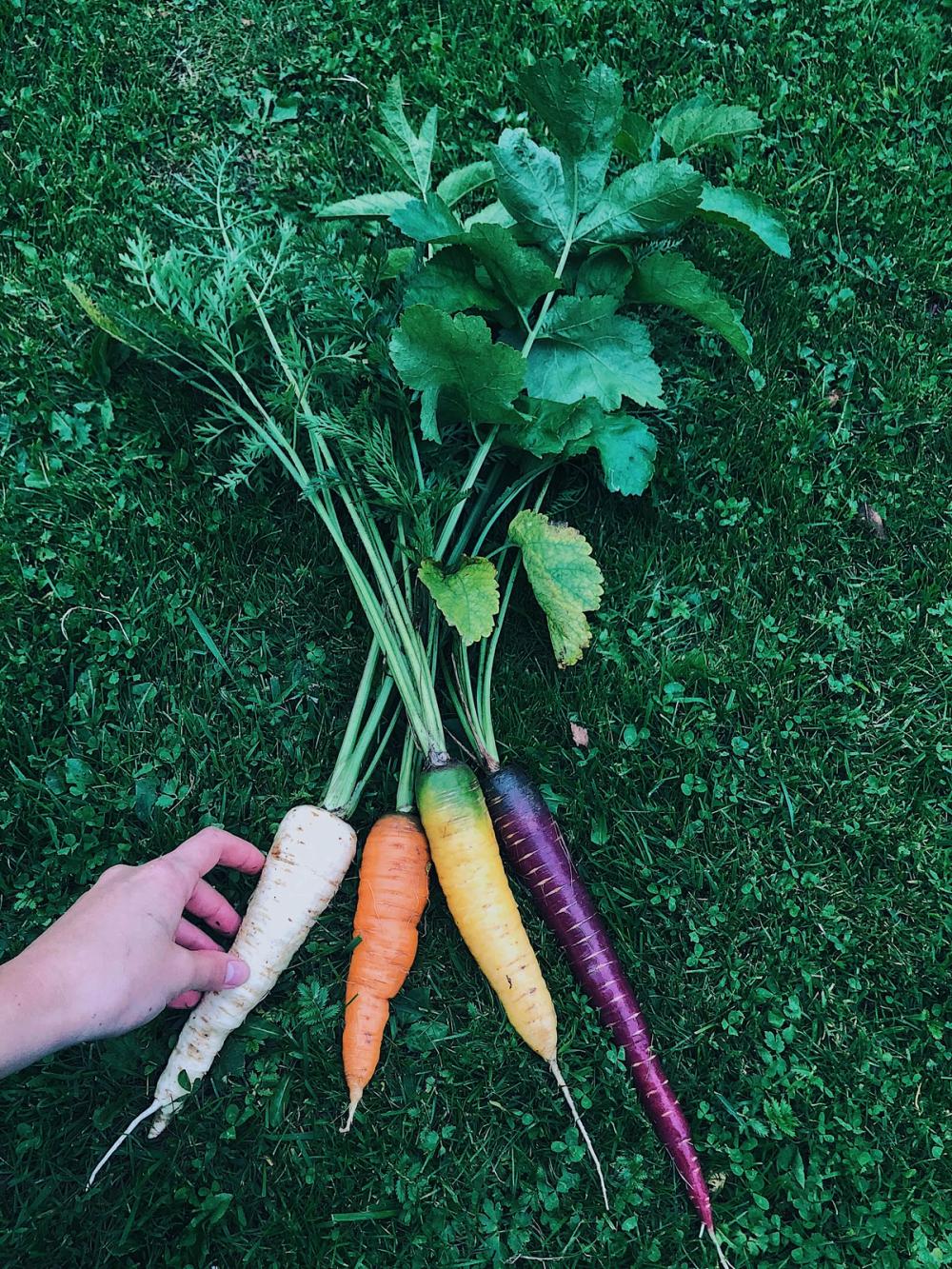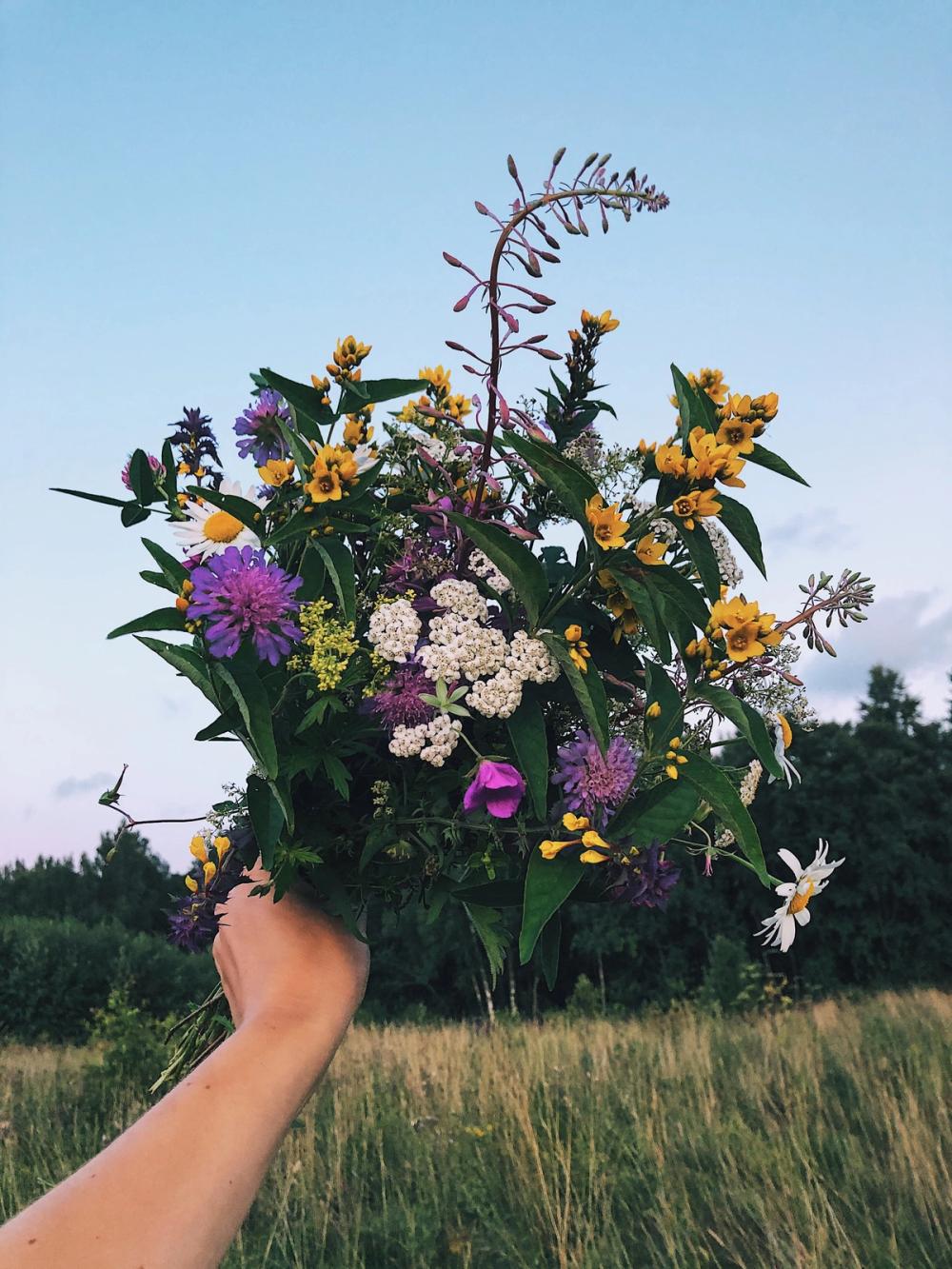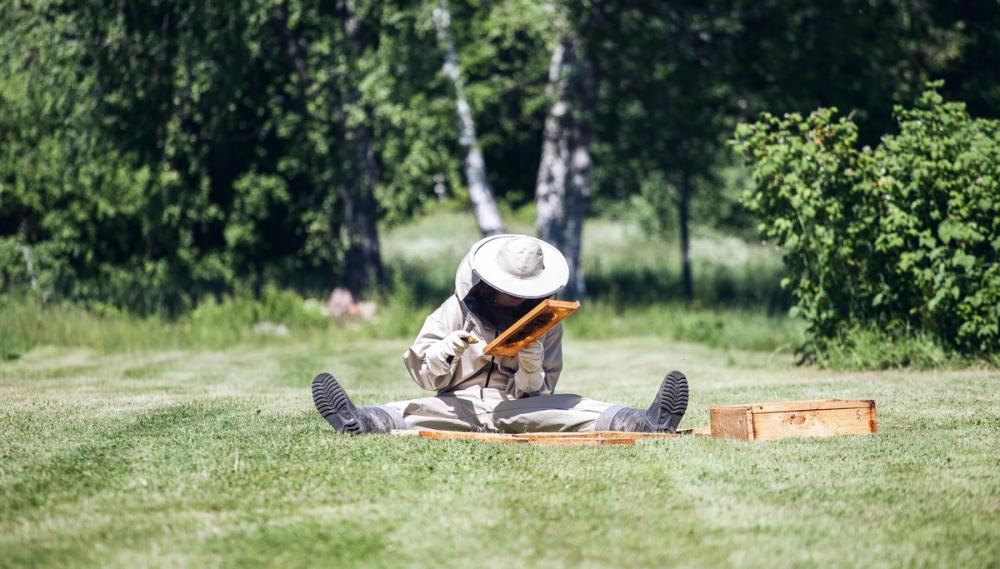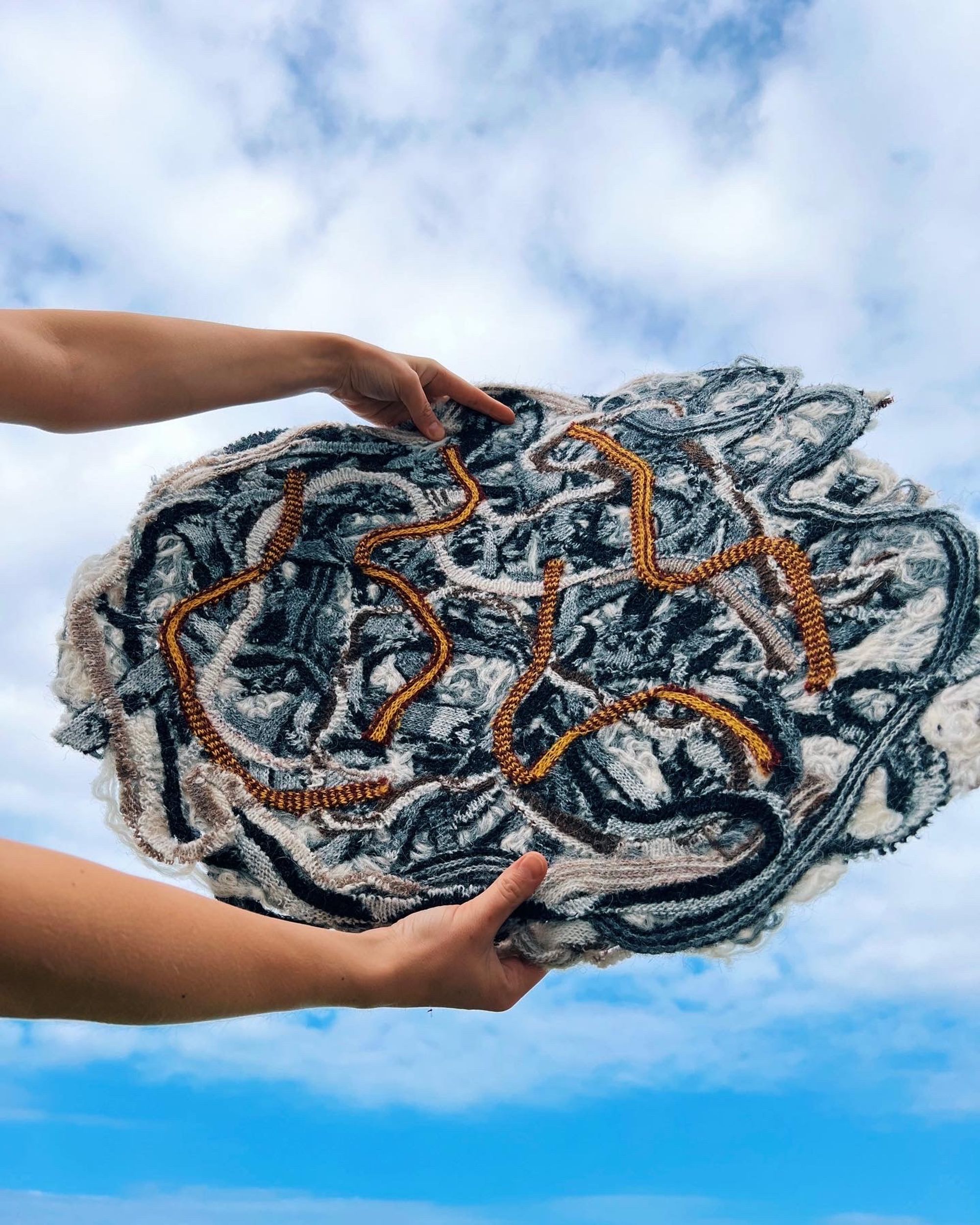When I met my partner in life, Rene, I was introduced to two of the most inspiring grandparents - Tiiu and Salev. When the pandemic started, me and Rene decided to use this opportunity to move out to the countryside for a few months in his grandparents cottage. Little did I know that this experience was going to change my life forever.
Tiiu and Salev are about 80 years old. They live in a small log house in one of the most remote areas in Estonia. Their home is surrounded by grass fields, forests, and occasional neighbouring cottages inhabited by people that they know well. They have a vast vegetable garden, orchard, many berry bushes, an apiary, a greenhouse, about 15 chickens, a cat, and a dog. This homestead was even more diverse when Tiiu and Salev were younger. Then they also had a cow, a few gooses, and pigs. The cottage had its own water well, a food cellar, a shed for firewood, etc. This property was the birth home of Salev, which he fully inherited from his parents. Tiiu and Salev have never been rich in terms of money, but to me, it looked like they had it all. This property has existed and functioned before there was electricity.
Despite technologies and the trend that life should get more and more comfortable at any cost, the grandparents have resisted the majority of it. They value self-sufficiency, clean and organic food, spending only what is necessary, community, and living in accordance with the rhythms of nature. I believe that this story is not at all unique. I believe that many Estonians have such memories and connections to the older generations, whose resilience was beyond anything that we could imagine to exist in modern society.
My stay at this cottage lasted about four months. I was not working at the time, because I was focusing on my studies at the university. This summer of 2020 gave me an opportunity to rest and experience a different life. So I took this opportunity and tried to learn and work as much as possible in this small family farm. I learned the basics about growing food, beekeeping, house maintenance, food preservation, traditional cottage life and I even learned a number of traditional recipes.
We also experienced a power outage due to a summer storm. The only thing it changed was that now we needed to go outside to the well to get water, we had to use candles for light in the evening, and we did not have cellular connection. But overall we could have lived just in this cottage without leaving for many months like that. Those traditional ways of life proved to be very resilient in a number of ways. I believe us as a society have many things to learn from the past such as simple and circular ways to manage, restore and create resources. Some of the lessons from the life of Tiiu and Salev include:
You eat what is local and seasonal
By local we mean very very local. The majority of their food came from a 100 metre radius, and majority of the rest came from 30 km radius. This was not because they never left their house and did not know that globalisation had reached our land, but because they had been merged into the tradition of a local way of life, and they enjoyed and valued it. For example, they preferred the local diet full of vegetables, herbs, and other produce that they could grow themselves here in Estonia. Their own food was extremely fresh, organic, and it tasted sooo good. I completely understand them not wanting to eat sushi or guacamole. The rush that I got from picking food from around the house and then cooking it was something to remember. This experience recurrently engulfed me into the moment and I felt like I could spend all my life just doing that. I learned that old recipes truly reflect what and how to eat in your local climate. What plants flourish here and what kind of food has nourished people here for a long time. In every climate there is a traditional dietary system, where locally grown produce is combined in sets that we call recipes. The local dietary system gives the body everything it needs to thrive. But we are slowly forgetting what is growable and edible here. We prefer acai to blueberry, not knowing that the latter is our own superfood that you can pick from the forest for free.
To eat is a basic need for humans. Today, our food has travelled more than most people on Earth. We have stretched the majority of the logistical journeys of food to a global scale. In the midst of deglobalization, our diets and capabilities to stay well nourished by having an abundant diet is at risk. Many of us have never learned or have forgotten what is edible right here where we are. Salev and Tiiu, and many more grandparents carrying the local sustainable and resilient lifestyles with them, will not be here long enough to catch us in times of crises. For Estonians, they have always been our plan B, but this plan is vanishing with the loss of this experienced older generation.
Use and take care of resources
The second area where my lessons derived from was the way Salev and Tiiu use and take care of resources. They were in touch with their natural surroundings. For example, they were building, repairing and heating their home with wood that was from their local forest. As I learned, often a storm breaks and falls a tree to the ground. This tree is then collected and turned into fire logs used to keep a house warm. When you are so close to nature, you can notice and use the gifts that nature gives you. Without being so close to this resource, wood is commonly sourced for you in a manner of clear cutting forests that is detrimental to forest ecosystems.
As furniture they had very good quality furniture pieces that were probably more than a hundred years old. And to me they looked like they were getting more expensive within a single day. I guess that nowadays we consume so much furniture, because it is not good quality. The pieces will end up looking outdated and ugly very quickly. The one time I moved my simple IKEA cabinet, it got ruined. Salev is the master of repair. He could build custom pieces for everything from scrap material. And he truly enjoyed it as well. As I have learned, doing work with your hands can be considered meditation and therapy even. I think I enjoy crafts and productive physical activities for the same reason. The heritage way of doing things is slow and long-lasting. And “long-lasting” and repairable is I think something we need in a society where we have become used to planned obsolescence.
Strength in community
The third and one of the most important lessons I learned was about community. I moved to a completely new area of Estonia. I did not have any friends or interesting activities there besides work and leisure in the cottage and swimming and hiking in lakes and forests. Although it sounds like I had lots to do, I still missed people. By tapping into my courage, I was able to make new friends in the area. I experienced how much the community plays a role in the process of adaptation. Just in a month I felt as comfortable as I had been living there for years.
The connections that I had access to by being part of the community made everything feel simpler and more fun. Many jobs and tasks get done because you know somebody. You help someone and someone helps you. Salev and Tiiu were selling eggs, tomatoes and cucumbers to their community. But from the community they had their personal hairdressers, tractor operators, vets, builders, etc. Nothing was searched from the internet. All the service providers were somehow connected and trusted. Of course, as with any situation connected to people, you sometimes get a little bit of drama. But despite the conflicts, the people still respect each other and keep together because they know they need each other. In the city, we most often do not have communities. Friends and family are not our community. Community is the network of trust between people in a certain area. In times of need, community is part of our security system. The community helps to share resources, to do the jobs and tasks that you don’t know how to do. Community has information, community equals help. If there is no community, there is no plan B.
Heritage is a lifeline
When I moved back to the city, like many others, who had also fled city life during covid, I suddenly had this realisation that a normal person in our society is completely incapable of taking care of itself in times of need. Heritage is keeping us alive. But without fighting to preserve the heritage that makes us resilient and empowered to live more in accordance with nature, we are left without it. Our society is calibrated towards “only good things will happen”. Despite hoping that it is the case, we should never put all our eggs into one basket. That is why Kopli 93 became a place for Tallinn citizens, a place where heritage meets the present day and influences our future.
As it turns out, about a 100 years ago and less, life in Kopli and Tallinn in general was not too different from the life that I experienced in the countryside. In addition to factory work, people had a local community economy. Many grew their own food as much as they could in the vast green spaces and gardens in the old workers housing areas. The communities were closer. Most of the entertainment, help and support came from the community. From one perspective, one can say that the people back in the day did not consume too much resources because they were just poor. But in my experience, when talking to Salev and Tiiu, they just did not want to be wasteful, and they did not see the need to consume more than necessary. They just were not as materialistic. Materialism was means to an end. Not the end or value itself.
In Northern Tallinn, we initiated a community center to bring some of the resilience and wisdom of our heritage back to the city. Kopli 93 is a community centre for local resilience. A place to strengthen relationships in a local area. So far, many neighbours have met for the first time in the centre. In Kopli 93, the people in the city can acquire skills, and knowhow, how to repair and use the resources that we have plenty of lying around. In the makerspace one can make an old piece of furniture looking like new. In the Kopli 93 garden, people can learn how to grow food and do beekeeping, skills and awareness that are key in solving many of the challenges connected to sustainability.
Our elderly grandparents in the countryside have done an invaluable job keeping heritage alive. In Kopli 93, we can use the heritage as a catalyst, as our inspiration, but we are not limited to innovate at the same time. Every grandparent would have had an easier life when incorporating permaculture principles or sourcing tested low- or mid tech solutions in other places around the world from the internet. We can take it to the next level for that reason. Our mission is to revive and upgrade the culture. We merge traditional skills and know-how of food production, building, and repairing with commons-based organisation, peer production, permaculture, and design thinking. For example, in addition to simple gardening boxes and furniture pieces repaired, we have built an open-source wind turbine. A community and a makerspace makes many technologies more accessible.
#Grandparentskills
Because of the inspiration I got from Tiiu and Salev, I made a joke about us reviving #grandmaskills and #grandpaskills at Kopli 93. But it is much more than just CENTRINNO inside joke. It is a story that guided us into making this Living Archive. This archive is capturing everything we discovered, and learned from our local heritage, and created based on that. Whatever the future holds for Kopli 93, I really hope that it left a mark to all of the visitors and community members that were part of it in the years of 2020-2023. I hope that through the people, the skills, knowledge and community relationships built already made a part of our society more resilient. They are the people who will greet you “Welcome to the community” when you become their neighbour.


